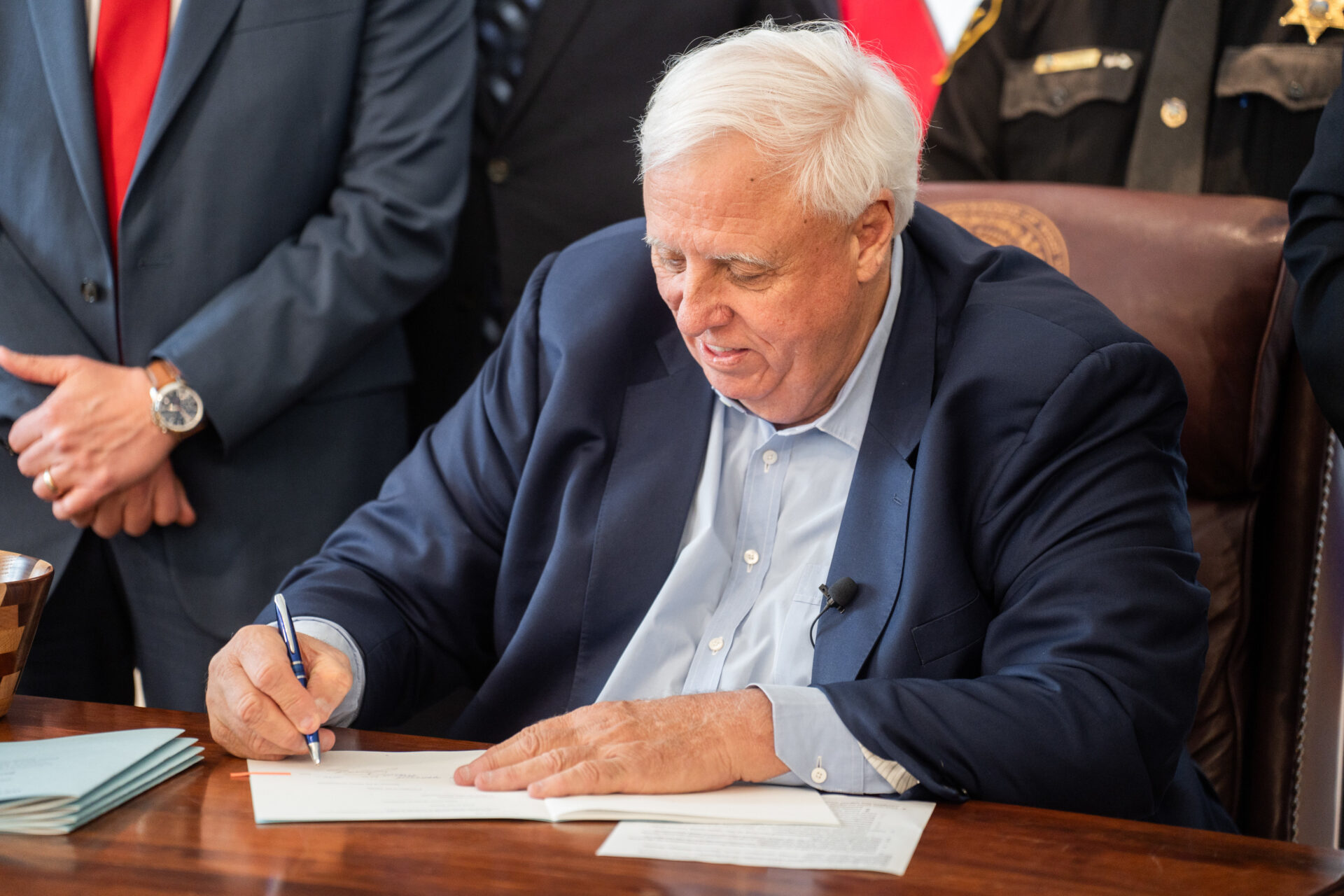In West Virginia courtrooms, marriage no longer qualifies as a legal defense for sexual abuse.
Gov. Jim Justice signed Senate Bill 190 into law Friday, removing all remaining marital exemptions for crimes of sexual violence.
Previously, state law blocked spousal prosecution over acts classified not as sexual assault, but as “sexual abuse” — namely non-consensual sexual touching.
Exemptions like these were even steeper decades prior. Spousal rape was not a criminal offense in the state until 1976.
That’s when former Sen. Judith Herndon, R-Ohio, then the only female state senator, called for changes to the state’s sex abuse laws that were later adopted by the West Virginia Legislature.
With spousal sex abuse now fully criminalized, state officials and community advocates alike have expressed hope that more support for survivors lies ahead.
Becoming Law
Marital exemptions for sex abuse have long been a concern of advocates for the survivors of domestic violence.
“This was definitely not new to this session. I’ve been working in advocacy full time for the last eight years, and I know that it’s been in conversation for as long as that,” said Sara Belvins O’Toole, director of development with Branches Domestic Violence Center.
Based in Huntington, Branches provides housing support to victims of domestic violence across five West Virginia counties.
This year, however, discussion over the statute grew in February, as members of the West Virginia House of Delegates debated the so-called “Women’s Bill of Rights.”
That bill aimed to define sex-based terminology in state law, and create protections for “certain single sex environments.”
Opponents of the bill described it as discriminatory toward transgender residents. Del. Kayla Young, D-Kanawha, introduced an amendment with several new provisions to exemplify “what [it] could look like if women had equal rights under the law.”
That included removing sales taxes on period products, establishing parental leave for state employees — and removing marital exemptions for sex abuse from state law.
Young’s other ideas were shot down. But one part of her amendment ultimately passed: removing the marital rape exemption.
The Women’s Bill of Rights, and therefore Young’s amendment, did not become law. But the possibility of removing marital exemptions grew as the session wore on.
A bill proposed earlier in the session by Sen. Ryan Weld, R-Brooke, passed through the West Virginia Senate later in February, then the House in March.
And, on Friday, Justice signed Weld’s bill into law.
Supporting Survivors
At a Feb. 23 Senate Judiciary Committee meeting, Gabrielle Mucciola, prosecuting attorney for Monongalia County, attested to the bill’s importance for supporting survivors of domestic violence.
“These cases are wildly underreported,” Mucciola said. “And I would say that this exemption creates just another hurdle for victims of sexual abuse and sexual assault to come forward and feel comfortable that West Virginia adequately protects them.”
“You can imagine the heartbreak that a survivor might feel if they’re going through the legal process and, all of a sudden, because they were married to that person, what happened to them is not validated,” Belvins O’Toole said.
With the bill passed, advocates for survivors of domestic violence say they expect these barriers to reporting sexual violence will be reduced.
“Hopefully… people understand that this is an option for them now,” said Julie Britton, director of the YWCA Resolve Family Abuse Program in Charleston. Britton’s group offers housing and emergency interventions for survivors of domestic abuse.
Belvins O’Toole said the new law ensures that people are equally protected from sexual violence.
According to her, reducing barriers to prosecuting sexual violence is especially important because it expedites a process that can be difficult for survivors. “Most importantly, this is a win for survivors,” she said.
Britton agreed, expressing hope for a better future for survivors across the state.
“I just think that this is a new day for West Virginia,” Britton said. “It’s just another tool that we can use to make sure survivors get the justice that they absolutely deserve.”
